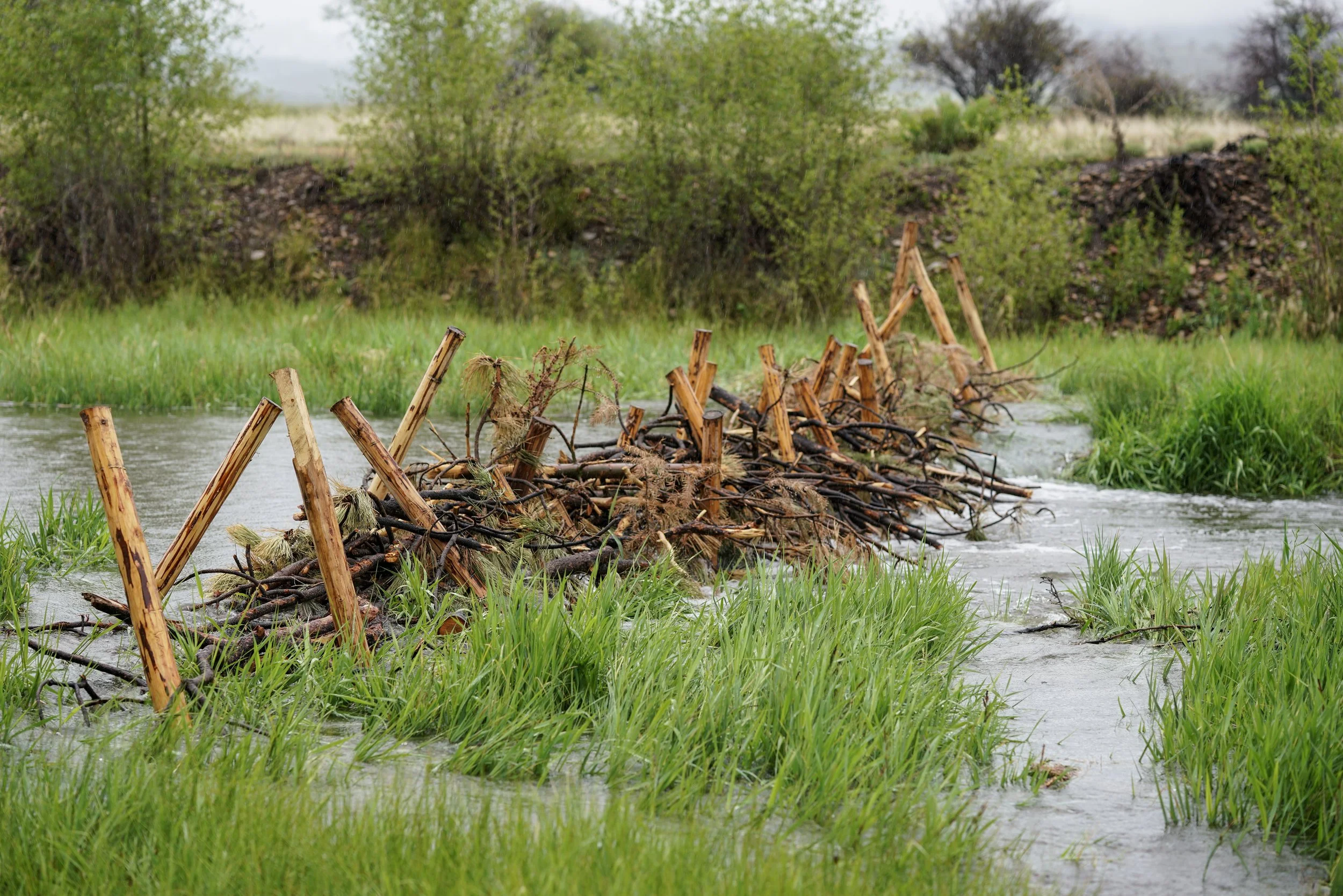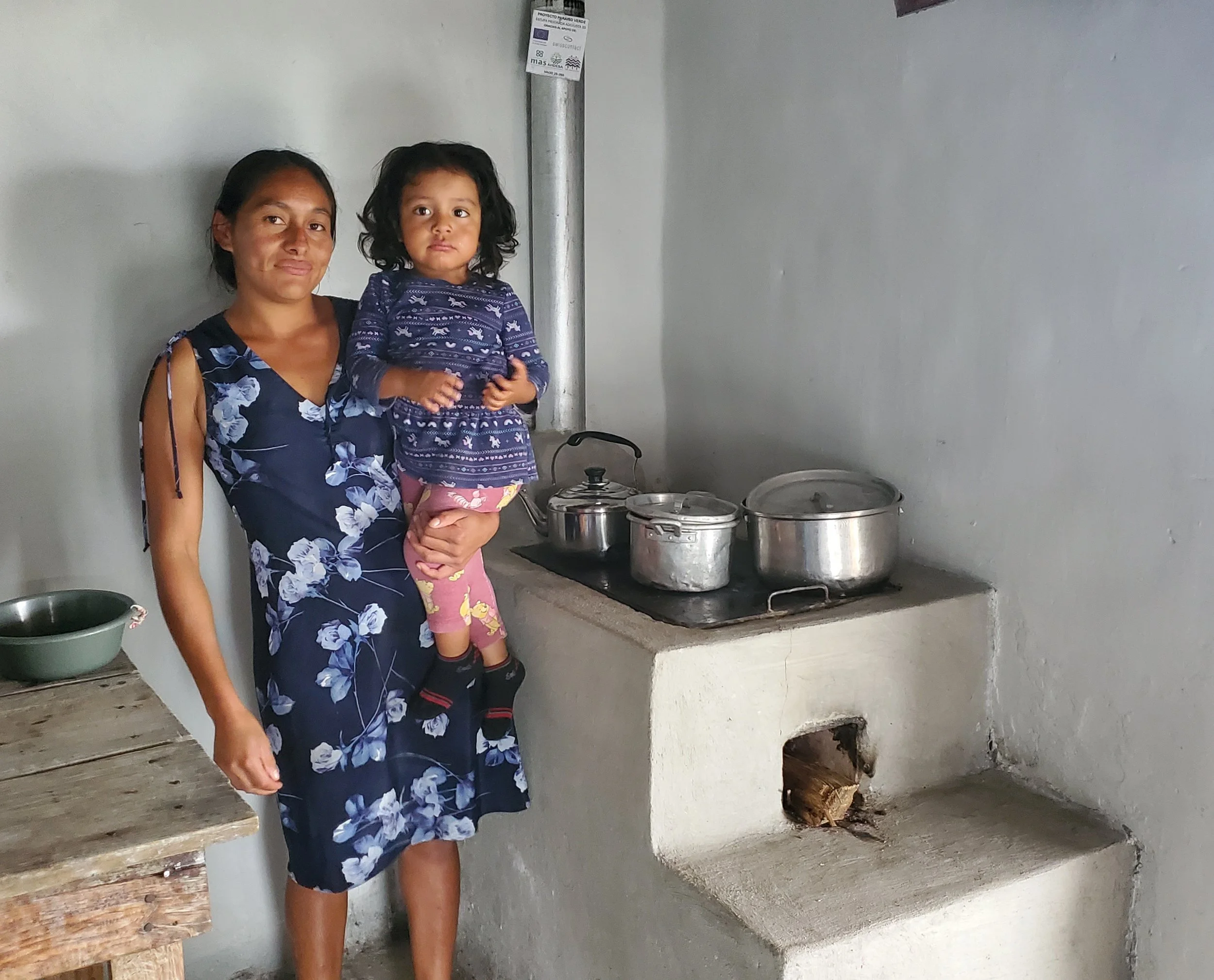
FORESTS FOREVER
Fall 2022 • Trees, Water & People Newsletter
Any day is a good day to work for a better climate future. A note from our Executive Director, Sebastian Africano
At Trees, Water & People (TWP), we consider it a great privilege to get up every day to work for causes and people who are making the world a better place to live in the era of climate change. We owe our impact to our dedicated staff, partners, local leaders, and communities that work daily to protect land, natural resources, and traditional lifeways for us all.
Partners like Comité Ecológico Aldea de Suyapa (COEAS) in Honduras inspire us daily, standing back up after grueling forest fires this year to plant 55,000 trees across 80 hectares of their communal forest land with 5,000 volunteers from the capital city, Tegucigalpa. That’s 5,000 more people who have an interest in protecting one of the city’s most biodiverse, community-managed, watersheds.
We’re proud of the community-led networks we support in Guatemala, where our partners Utz Che’ facilitated an 18-month process to empower indigenous women in combating gender-based violence in their environment. This program created space for nearly 400 women to gain confidence with regard to their rights, autonomy, and ability to heal and lead their communities as earth stewards, knowledge keepers, business owners, and food producers.
We honor our friends and partners at the Cheyenne River Youth Project and Red Cloud Renewable in South Dakota, who hosted a group of Colorado high school students from diverse backgrounds, who will be the first generation of their families to attend a four-year university. The students, all part of Colorado State University’s Upward Bound program, came back feeling part of a bigger community, with new perspectives on Native American life and history.
All of these partnerships and programs are what makes TWP unique. We meet people where they are, and match local needs and priorities with resources to make change happen. Your gifts to TWP connect you to this story, and we’re all grateful that you support this work.
Every day is an opportunity to make change happen—and we thank you for choosing TWP to turn that opportunity into action.
From left to right: Marlon López, Sebastian Africano and Darío Moncada
Sebastian Africano
Executive Director
Trees, Water & People
Unifying Land and People in the Southwest
by James Calabaza, Indigenous Lands Program Director
Rangelands have always been critical ecosystems to many Native American Tribes. These landscapes hold valuable agricultural natural resources and cultural significance to the preservation of their cultural lifeways. For Tribal stewards, this means managing the soil, water, air, plants and all living organisms, but also taking the necessary actions to address issues such as erosion, noxious weeds, and poor water quality factors. These stewardship activities are becoming more pressing and essential as various environmental and human-caused behaviors have negatively impacted these landscapes, which makes them more vulnerable to a shifting climate. Drought, rise in annual temperatures, overgrazing and mismanagement of stocking rates are factors that have contributed to the poor health of the rangelands.
Not all this negative weight and responsibility falls on Tribal land managers and stewards. It’s clear that many Tribal Departments of Natural Resources (DNR) and communities are both under-resourced and staffed–which leads to challenges in the management of Tribal lands and resources. That’s why TWP’s Indigenous Lands Program (ILP) has worked alongside Tribal DNRs to developlocal, culturally appropriate workshops that boost local engagement and understanding in the restoration and preservation of these critical landscapes.
In New Mexico, our ILP team has provided local educational materials for Tribal ranchers and producers, which have been well received. With the support of the Tri-Pueblo Coalition (Pueblos of Cochiti, Jemez and Kewa), the team held three hands-on workshops with local Tribal members to strengthen their awareness of sustainable range management practices and revitalizing centuries-old Tribal knowledge of range management practice. This fall, we will continue our collaborative effort with the Tri-Pueblo Coalition, as we host another workshop focused on water conservation so that Tribal ranchers and producers can capitalize on seasonal monsoon rains by damming water for long-term use.
Rangelands have their own unique set of stewardship responsibilities and challenges. That’s why we do what we do–empower each other and learn to live sustainably.
With your continued support of our work, we can ensure that Tribal rangelands can continue to sustain the cultural lifeways of Tribal peoples.

“MY PURPOSE is to protect the land and the water we have.”
– Luis “The Man” Baca
Cofounder and President COEAS
Going a Step Beyond in Clean Cooking
By Sebastian Africano, Executive Director
For a quarter century, Trees, Water & People (TWP) and our Honduran partner Asociacion Hondureña para el Desarrollo (AHDESA) have been working to improve conditions for families that depend on firewood to cook their food. We’ve studied the benefits of clean cooking exhaustively and have shown the Justa stove’s ability to improve health, reduce firewood consumption, and create jobs in Central America.
Now we’re going a step beyond, to ensure stoves stay in use and produce longer-term benefits.
Fire is a destructive element. The insides of a Justa stove take a beating every day from exposure to high temperatures for hours at a time, and parts begin to see irreversible wear by the stove’s second year of use. In some rural households, the stove is lit for 16 hours a day.
Nine out of 10 people who replace their traditional stoves with Justa stoves use them for their entire useful life of four to five years. However, some stoves need replacement parts or minor repairs before that, and products like reinforced steel griddles, chimneys, and specialized stove mason services aren’t readily available in the Honduran marketplace.
With the municipality of Comayagua, Honduras, which has funded the installation of tens of thousands of Justa cookstoves the past seven years, we identified three communities with a high demand for replacement parts due to the age of their stoves. AHDESA placed Justa stove parts for sale at local storefronts in these communities, and are promoting the services of local stove builders through public events, posters, mobile announcers, and flyers in the community.
The response has been overwhelmingly positive. After one event in each of the three pilot communities, where we offered replacement parts at a 30% discount for a limited time, almost all of the 120 stove refurbishment kits available were reserved by community members.
There are over 1 million households in Honduras that
depend on firewood for cooking every day, most on traditional, open fire stoves. If improved stoves fall out of use
every five years for want of a new griddle or chimney, we don’t make progress on reducing the number of open indoor fires. By making parts available to communities at an affordable price and connecting them to a trained local builder, we hope to keep stoves in use for an additional three-five years.
Strong local livelihoods help build strong local economies and sustainable futures for low income communities in Central America. This is one way TWP and AHDESA can extend our impact while creating meaningful local connections and long-term relationships.
Sharing Cultures | Student Testimonial
We know the profound impact of travel–particularly interculturally-focused travel–on young people. It can literally
change the course of their lives and careers. In July TWP Tours and a group of Colorado State University Upward Bound
Students had a chance to travel to South Dakota thanks to our donors and the Dutch Bros Foundation.
Esmeralda Oliva, High School Student, 16
This trip to South Dakota was a learning experience for me. Getting immersed in a different culture to my own and having the opportunity to help was something I would not trade for anything. While staying at the Cheyenne River Youth Center, I learned not only about different indigenous practices but also the importance of community and how much I value the UpwardBound community. During the span of the week, having the opportunity to cook meals together, garden, and organize the warehouse created even stronger connections with those around me. Getting to help but also learn about an indigenous community is not an opportunity I’ve come across here in Fort Collins. I was lucky enough to be picked to go on this trip and would do it over again in a heartbeat. Now that I’ve learned more about the beautiful parts of this culture and also the injustices, I can be more conscious of my everyday actions and be more educated. Going in, I knew very little about reservations in the US, but now I have a basic understanding which is a lot more than before. During the trip, we picked weeds, harvested vegetables, organized a warehouse, cleaned a water tank, and learned about the culture. We heard stories from an elder, learned about the importance of the youth center in Cheyenne River and learned about renewable energy and how it can be used to create income and economic opportunities for people on the reservation. I walked away from this experience with stronger connections with my peers in UpwardBound and have become better educated in indigenous culture and the injustices they face in the US.











When the 110 families of El Asintal resettled in Guatemala, they arrived home to a near-empty plot of land, with scarce resources to rebuild.
Like many Indigenous communities in the region, these families were displaced amidst Guatemala’s violent civil war. The government’s designation of lands for resettlement in the early 2000s was an opportunity to return home, but not without significant debt and great hardship.